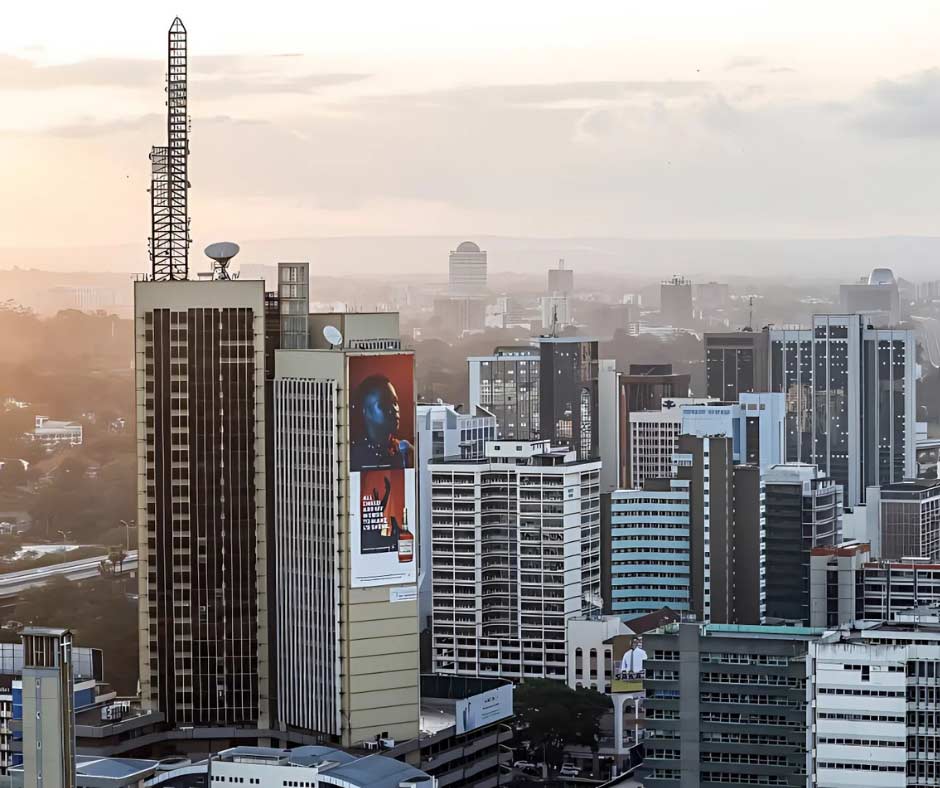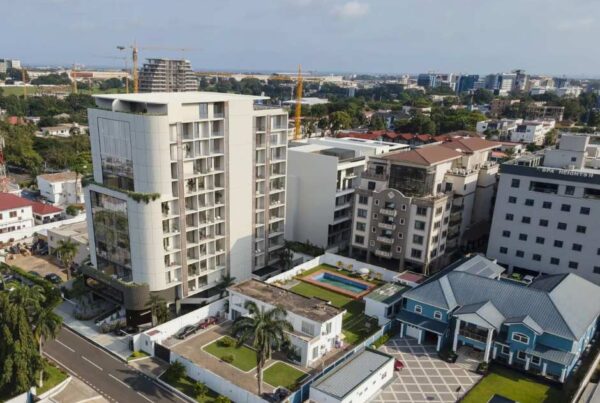Over the past decade, Nairobi has earned the nickname “Silicon Savannah”, becoming East Africa’s leading technology hub. Global tech giants like Google, Microsoft, IBM, and Amazon Web Services have established major operations in Kenya, drawn by a thriving startup ecosystem, reliable mobile infrastructure, and a highly skilled, English-speaking workforce. As the tech sector grows, it’s not just the digital economy that’s expanding—Nairobi’s real estate market is experiencing a dramatic transformation in response to these shifts.
Suburbs such as Westlands, Kilimani, Parklands, and Upper Hill have seen a surge in high-rise developments, luxury condominiums, and mixed-use commercial spaces. These urban zones are now magnets for young professionals, remote workers, expatriates, and entrepreneurs who prioritize lifestyle, connectivity, and convenience.

Modern residential projects offer features such as 24-hour security, rooftop lounges, gyms, swimming pools, smart home technology, and co-working lounges—designed to cater to the digital generation. Developers like Centum Real Estate and Superior Homes Kenya have responded with multi-functional living spaces that blend work, leisure, and community.
According to Knight Frank’s 2024 Africa Market Report, Nairobi saw a 9.2% year-on-year increase in prime residential property prices, while rental yields in serviced apartments reached 7% to 9%, particularly in well-connected business districts. Occupancy rates for short-term rentals remain high, buoyed by regional business travel, diplomatic activity, and remote workers who now consider Nairobi a viable base.
Despite the boom in high-end real estate, housing affordability remains a serious issue for much of Nairobi’s population. The demand for low- and middle-income housing far outpaces supply. Nairobi’s population is growing by over 4% annually, with more than 60% of residents living in informal settlements like Kibera and Mathare.
The government’s Big Four Agenda, introduced in 2018, included a target of building 500,000 affordable homes nationwide. While the initiative attracted private sector partners, bureaucratic delays, land disputes, and financing limitations have slowed progress. By mid-2024, only about 50,000 units had been delivered.
To bridge this gap, private developers like Mi Vida, Unity Homes, and Karibu Homes are creating budget-friendly apartment blocks in satellite towns such as Athi River, Syokimau, Kitengela, Ruaka, and Ruiru. These areas are benefiting from upgraded infrastructure like the Standard Gauge Railway (SGR), Thika Superhighway, and Nairobi Expressway, making them increasingly attractive to first-time buyers and families.
Prices for starter homes range from KSh 2.5 million to KSh 6 million (USD 18,000–42,000), with developers offering mortgage options in partnership with local banks. Government-backed mortgage firms like the Kenya Mortgage Refinance Company (KMRC) are also making home financing more accessible.
Alongside residential growth, Nairobi is witnessing a renaissance in commercial real estate. With the influx of tech companies and co-working culture, demand for Grade A office space remains strong, particularly in nodes like Two Rivers, Karen, Gigiri, and Upper Hill. Flexible workspaces—championed by providers like Nairobi Garage, Regus, and Workstyle Africa—are reshaping how and where people work.
Mixed-use developments, combining retail, office, and residential units in one location, are also on the rise. Projects such as Garden City, Two Rivers Mall, and The Pinnacle—set to be Africa’s tallest building upon completion—are becoming self-contained urban ecosystems offering everything from fine dining to childcare under one roof.
Despite the positive outlook, the Nairobi real estate market still faces challenges. Land tenure disputes, zoning inconsistencies, and infrastructure deficits in certain neighborhoods slow development and increase costs. Investors also remain cautious about political stability, corruption, and currency fluctuations, though Kenya’s stable democracy and strategic geographic location continue to inspire confidence.
Moreover, with climate change impacts becoming increasingly felt, there’s a growing demand for eco-friendly housing solutions. Developers are exploring green building certification, solar integration, rainwater harvesting, and energy-efficient designs to meet both buyer expectations and regulatory requirements.
Nairobi’s real estate story is no longer just about supply and demand—it’s about transformation. As the tech sector continues to shape the city’s economy and demographics, the built environment is evolving in tandem. From sleek apartments in Westlands to affordable homes in Ruaka, and co-working hubs in Upper Hill to green estates in Athi River, Nairobi is setting the pace for urban growth in Africa.
For investors, developers, and residents alike, the opportunity lies in understanding the dual narratives of luxury and affordability, innovation and inclusivity, profit and purpose. Nairobi, the beating heart of Silicon Savannah, is just getting started.







